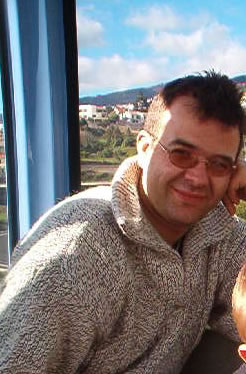A new look at Time, Entropy and the End of The Universe
Why Time Might Flow in One Direction
Summary - (Nov 1, 2004) Physicists have puzzled for more than a century about the nature of time. Why does it go in one direction? Time could go backwards, and physics formulas would still work properly. Researchers from the University of Chicago think they might have an answer: we live in a universe of ever increasing entropy. Instead of one Big Bang going off, and then the Universe expands and cools forever, small fluctuations in nearly empty space could set off new Big Bangs - the Universe would never reach equilibrium.
Full Story -
The big bang could be a normal event in the natural evolution of the universe that will happen repeatedly over incredibly vast time scales as the universe expands, empties out and cools off, according to two University of Chicago physicists. “We like to say that the big bang is nothing special in the history of our universe,” said Sean Carroll, an Assistant Professor in Physics at the University of Chicago. Carroll and University of Chicago graduate student Jennifer Chen will electronically publish a paper describing their ideas at http://arxiv.org/. Carroll and Chen’s research addresses two ambitious questions: why does time flow in only one direction, and could the big bang have arisen from an energy fluctuation in empty space that conforms to the known laws of physics?
The question about the arrow of time has vexed physicists for a century because “for the most part the fundamental laws of physics don’t distinguish between past and future. They’re time-symmetric,” Carroll said. And closely bound to the issue of time is the concept of entropy, a measure of disorder in the universe. As physicist Ludwig Boltzmann showed a century ago, entropy naturally increases with time. “You can turn an egg into an omelet, but not an omelet into an egg,” Carroll said. But the mystery remains as to why entropy was low in the universe to begin with. The difficulty of that question has long bothered scientists, who most often simply leave it as a puzzle to answer in the future.
Carroll and Chen have made an attempt to answer it now.
(universetoday.com)


No comments:
Post a Comment